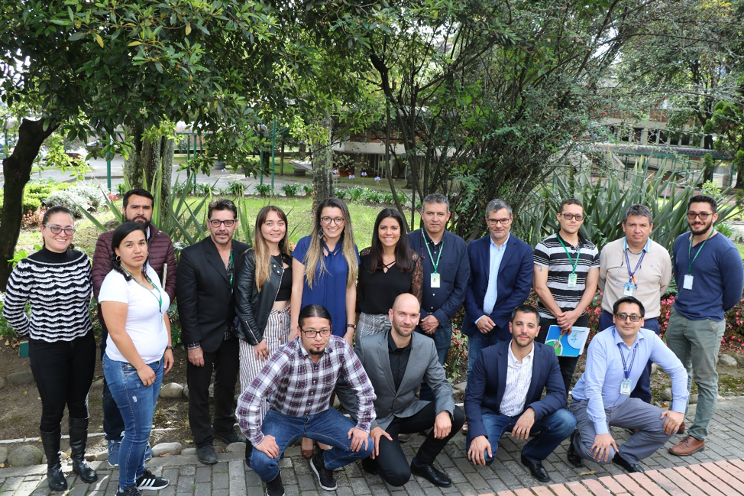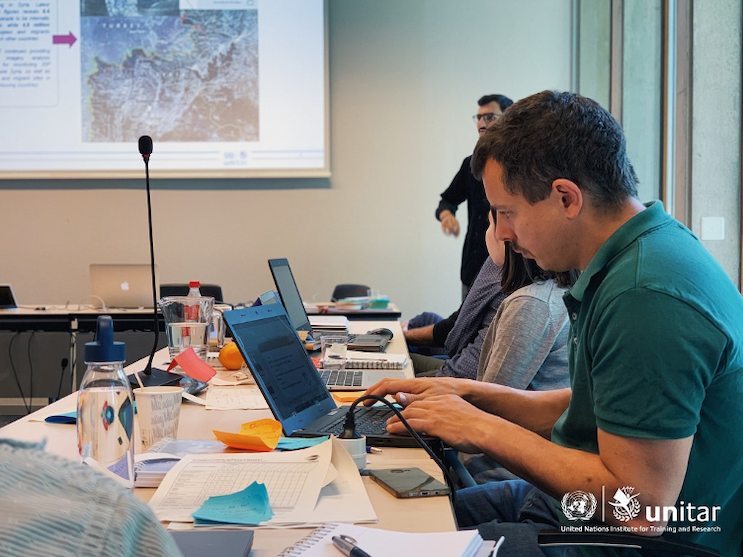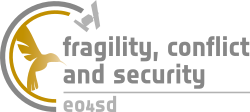Apart from services, another important component of the EO4SD Fragility initiative is to develop and implement capacity building activities. International financial institutions as well as government and non-government organizations in countries affected by fragility can benefit from them.
In this context, capacity building can serve two main purposes. The first one is to familiarize people with geospatial information technologies, what they can achieve, what is unrealistic and their main applications in specific fields. The target audience tends to be decision-makers. This awareness-raising part is usually done through short workshops (e.g. 1 day) tailored to specific audiences.
A second possible objective of capacity building is to give people a technical training in a specific field of geospatial information technologies. In this case, participants must already have a certain level of expertise in the area. They will thus be able to reinforce their skills and learn new ways to use earth observation technologies in contexts of fragility -whether this has to do with population displacements, illegal extraction of resources or construction monitoring for example. Such technical trainings generally take slightly longer than awareness-raising workshops to allow for practical exercises (e.g. 2-3 days).
The EO4SD Fragility consortium has already delivered both types of capacity building and will continue to do so with interested and relevant stakeholders until the end of the project. In terms of awareness-raising for instance, an online crash course has been published and can be taken by all. French and Arabic versions are also available. With regard to more technical courses, the consortium delivered a training session in Bogotá, Colombia, to the World Bank, the Geographic Institute Agustín Codazzi, and the Instituto de Hidrología, Meteorología y Estudios Ambientales. Over 2 days, participants were able to learn more about the use of remote sensing for environmental monitoring of critical wetland habitat and cadastral mapping to support the establishment of property rights.

Participants at the training session in Bogotá, Colombia.
To ensure the quality and sustainability of these capacity building initiatives, the consortium organized an internal training of trainers in the beginning of the project, and developed an online community of practice platform where participants can ask questions following their training.

Participants at the Training of Trainers session in Geneva

